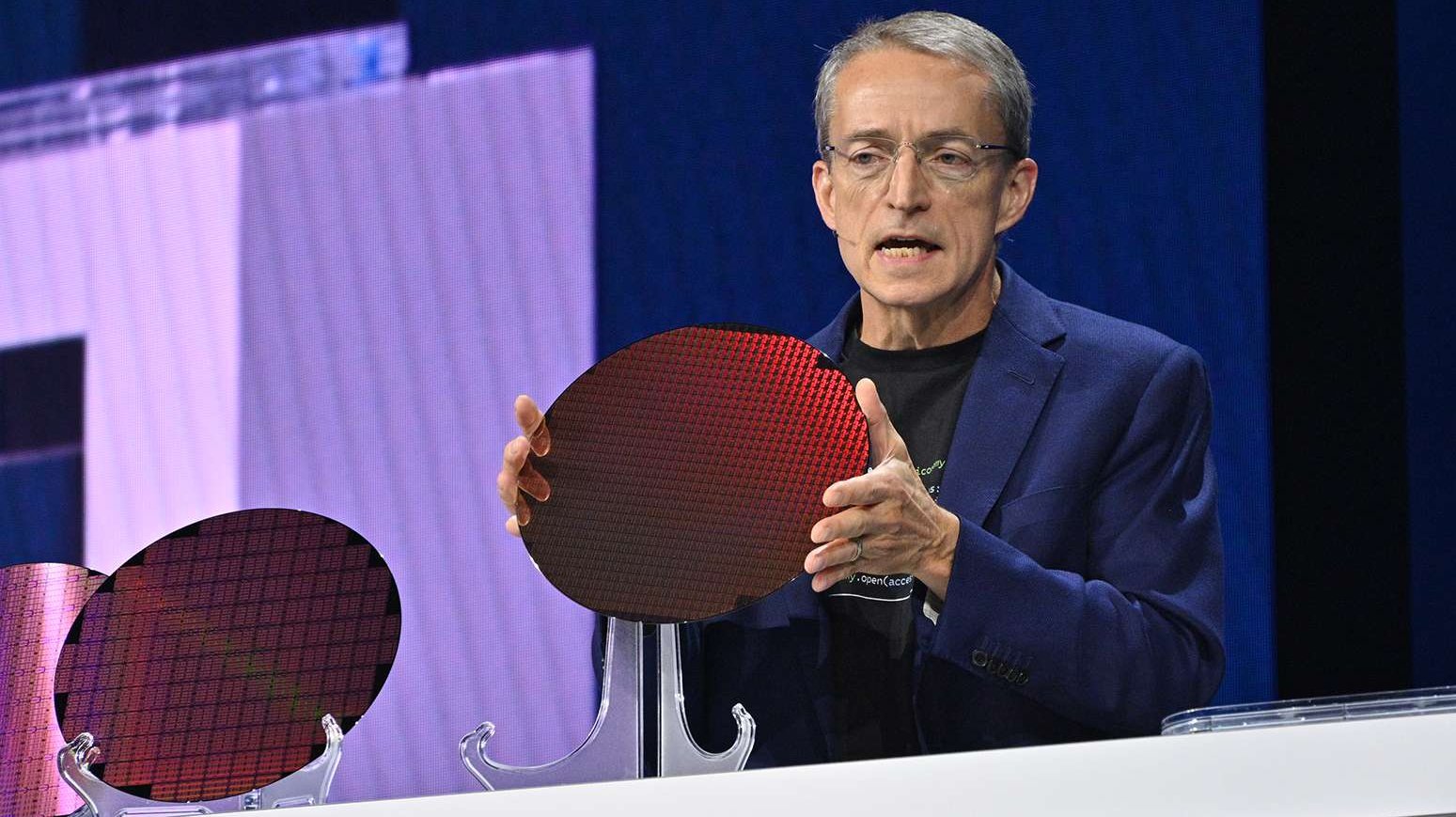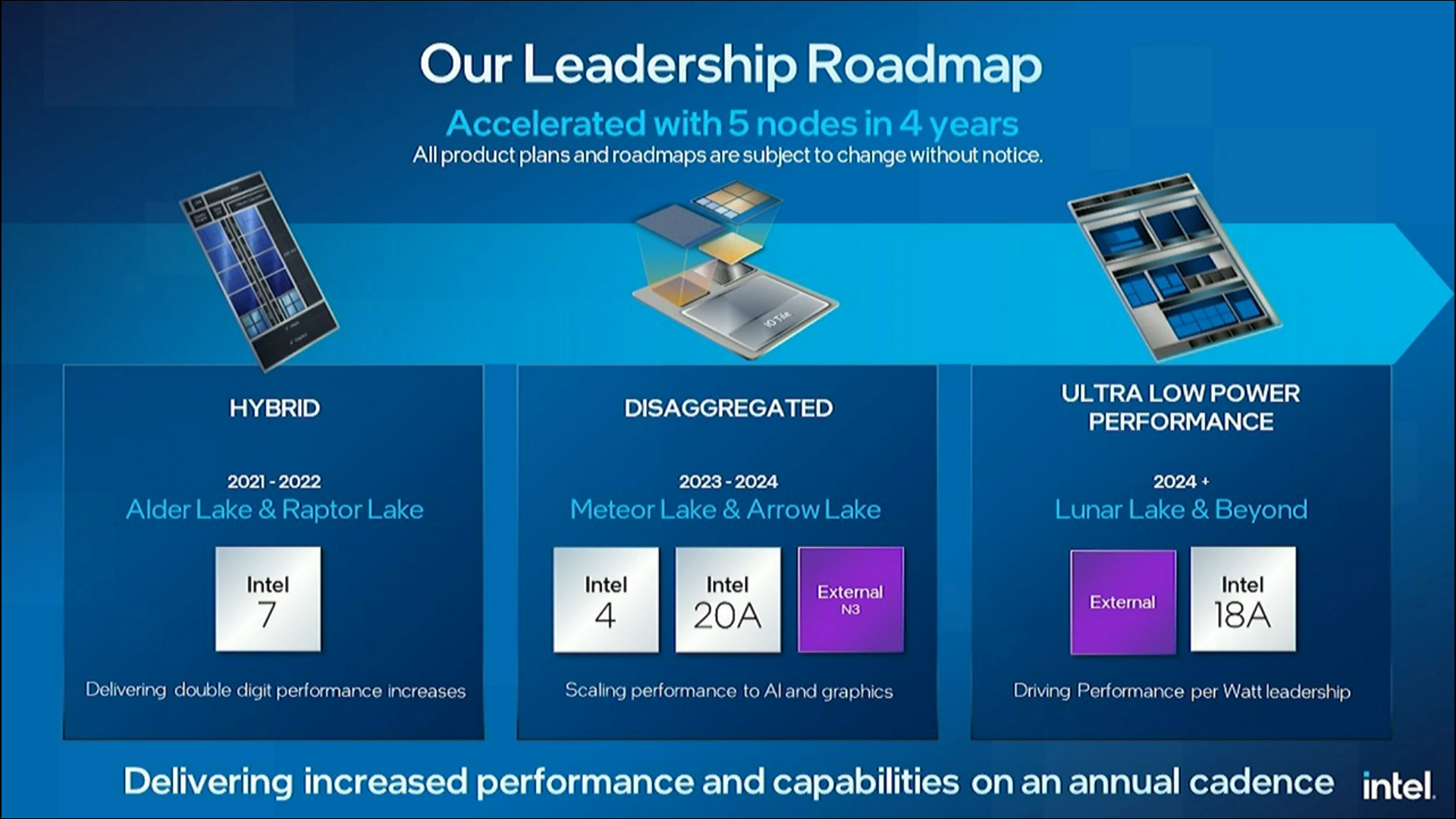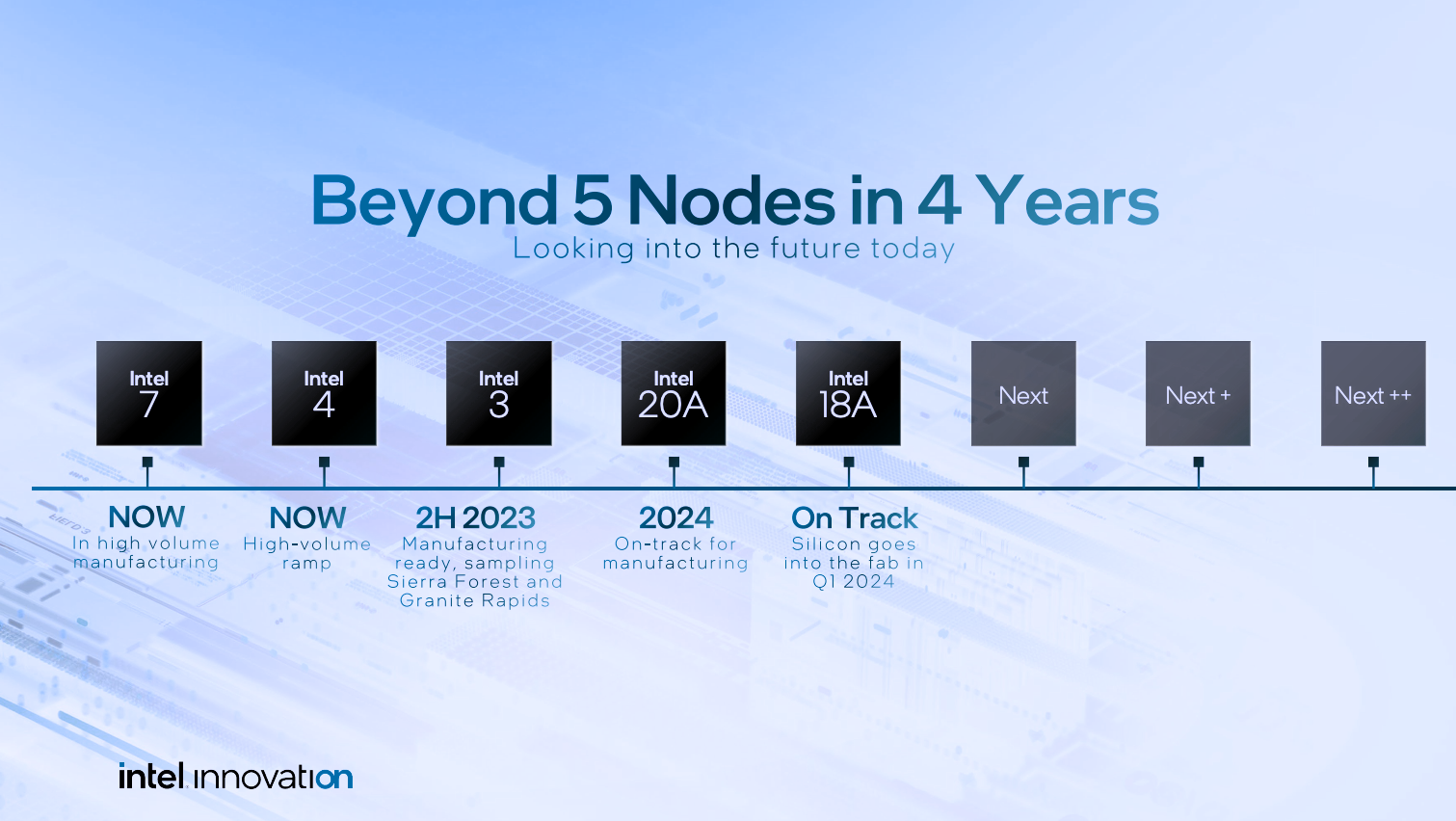Intel's next-gen Lunar Lake CPU demo poses more questions than it answers
New CPU is meant to be made on Intel 18A. But is it?

We're still waiting for Intel's next-gen Meteor Lake CPUs to make retail availability. All the expectations are that those chips will be limited to laptops and the desktop will only receive a minor refresh of the existing Raptor Lake chips. But now comes news that Intel has been showing off yet another new generation of CPUs, known as Lunar Lake.
As things stand, Lunar Lake is at least three generations hence, or four if you count the Raptor Lake refresh. After Meteor Lake and that Raptor refresh comes the next proper update for the desktop, known as Arrow Lake. It's only after Arrow Lake that Lunar Lake will arrive.
So, you could argue, who cares? Let's at least get Meteor Lake and Arrow Lake out the door and see what they're like before we get too excited by Lunar Lake.
However, the thing is that Intel CEO Pat Gelsinger has shown Lunar Lake not just booting into Windows, but running actual workloads. More to the point, according to Intel's own public roadmaps, Lunar Lake is based on Intel's 18A process tech. Again, that's three nodes out from the current Intel 7 node used for its most advanced available CPUs. Before Intel 18A arrives, Meteor Lake will roll out on Intel 4 and Arrow Lake on Intel 20A.
Gelsinger showed Lunar Lake running several AI-related workloads at the recent Intel Innovation 2023 conference, including an AI-powered music generation tool known as Riffusion and the more familiar text-to-image Stable Diffusion tool. So, Lunar Lake is looking pretty healthy at this early stage.

That all sounds like good news for Intel's promise to deliver five new production nodes in four years. At which point, the caveats arrive in force. First, 18A is really a derivative of 20A, so the way Intel is counting nodes is somewhat questionable.
Possibly more critical is that Intel has Lunar Lake down as being based on both Intel 18A and an unnamed external node, almost certainly a current or future TSMC node. In other words, it's possible that the Lunar Lake chip shown running AI code didn't have any Intel-made silicon. That's the thing. Gelsinger didn't say anything about the silicon in the Lunar Lake demo chip.
Keep up to date with the most important stories and the best deals, as picked by the PC Gamer team.
As with Meteor Lake and Arrow Lake, Lunar Lake will be a chiplet design. Almost certainly some of Lunar Lake's chiplets will be made by TSMC. But it's as possible the demo chip was all TSMC as it was Intel-based, and therefore doesn't by itself give any insight into the health of Intel's 18A node. Indeed, there are rumours that most configurations of Arrow Lake desktop CPUs, due out next year, will be made using all TSMC silicon.

What's more, there's at least one reason to think that's the case with this Lunar Lake demo chip. Intel itself says it will not begin "risk" production of its 18A node until the first quarter of next year. That doesn't make it entirely impossible that Intel has used some very early test 18A silicon for the demo, but it does make it unlikely.

Best CPU for gaming: The top chips from Intel and AMD.
Best gaming motherboard: The right boards.
Best graphics card: Your perfect pixel-pusher awaits.
Best SSD for gaming: Get into the game ahead of the rest.
Of course, Intel could have changed up its roadmap and shifted Lunar Lake to 20A. But whether TSMC silicon or 20A silicon, either way the demo wouldn't be providing any insight into Intel's 18A node.
What to conclude from it all? The bottom line is that the success of Intel's self imposed target of regaining leadership in chip production by 2025 remains frustratingly unclear. We still haven't seen anything for sale beyond chips based on Intel 7, which is a rebrand of its 10nm technology. But one thing is for sure. Time is running out for Intel to begin delivering tangible progress and not just roadmaps and demos.
Intel now says that Meteor Lake will launch on December 14th, just squeezing the new chip into 2023. Arrow Lake and Lunar Lake had better follow swiftly.

Jeremy has been writing about technology and PCs since the 90nm Netburst era (Google it!) and enjoys nothing more than a serious dissertation on the finer points of monitor input lag and overshoot followed by a forensic examination of advanced lithography. Or maybe he just likes machines that go “ping!” He also has a thing for tennis and cars.

